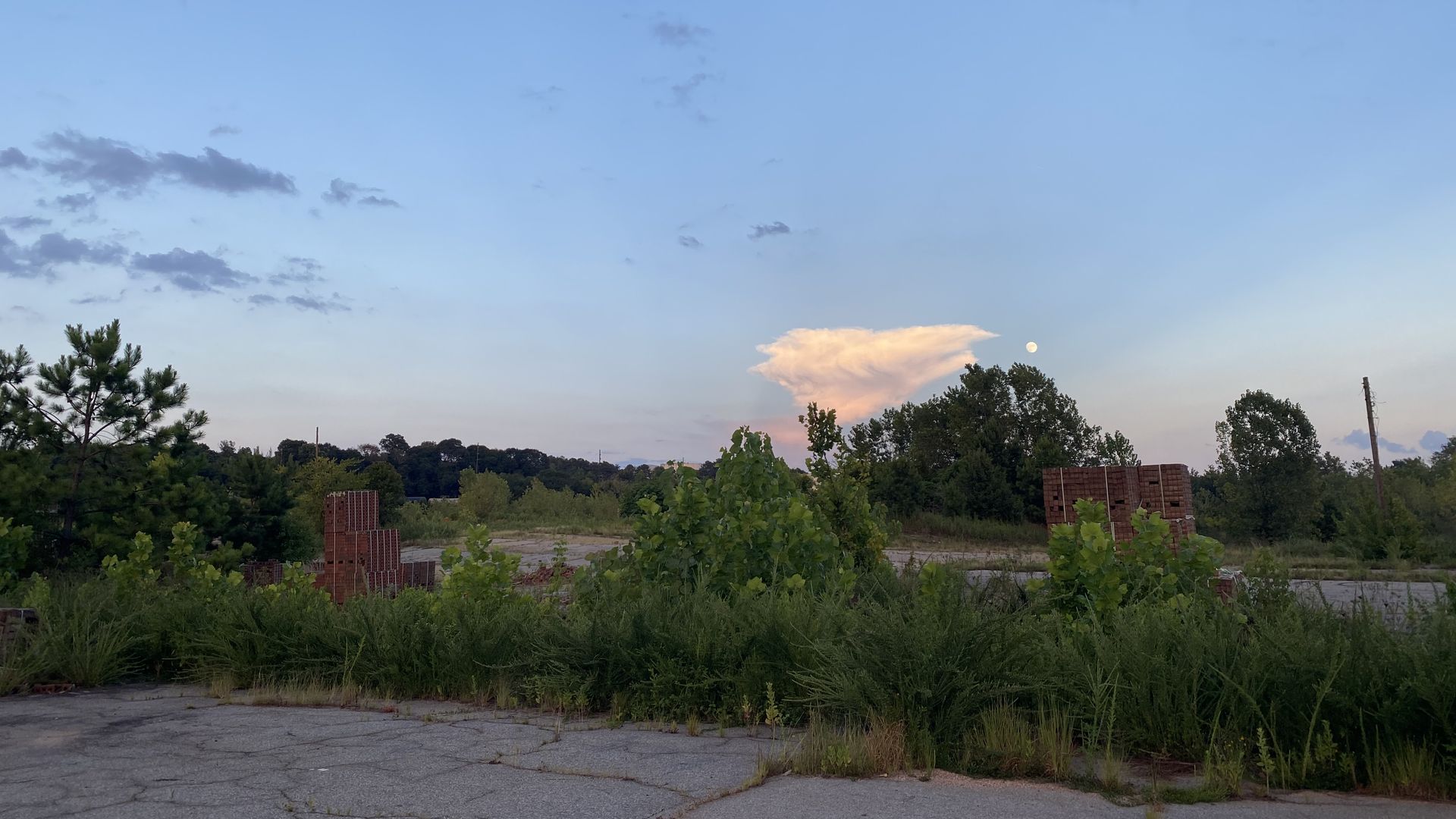Chattahoochee Brick site to memorialize convict leasing victims
Add Axios as your preferred source to
see more of our stories on Google.

The former site of the Chattahoochee Brick Company. Photo: Thomas Wheatley/Axios
The former site of the Chattahoochee Brick Company, where incarcerated people were forced to labor without pay and in grueling conditions in the late 19th and early 20th century, will become a park and memorial, the city announced today.
- The deal prevents the historic site along the Chattahoochee River and Proctor Creek from becoming an industrial site or other development that could pave over the property's past.
Why it matters: For decades after the Civil War, Southern states leased incarcerated people — most of whom were Black and often times arrested for crimes such as loitering or spitting — to companies that wanted cheap labor.
- The owners of the Chattahoochee work yard used the practice — known as convict leasing — to churn out hundreds of thousands of bricks a day that were used to build Atlanta's sidewalks, streets, and homes.
Flashback: The history of Chattahoochee Brick and the practice of convict leasing in Georgia was largely overlooked until Doug Blackmon, an Atlanta journalist who at the time was working at the Wall Street Journal, wrote the Pulitzer-winning book "Slavery by Another Name."
Details: Working in partnership with the Conservation Fund, the nonprofit group that helped the city protect Lake Charlotte Nature Preserve, the city has brokered a deal to buy the site from Lincoln Energy.
- The South Carolina-based energy company planned to build a fuel terminal on the property, which until earlier this year was overgrown and dotted with piles of bricks.
Next steps: The Atlanta City Council community development and human services committee is expected to pass out the legislation authorizing the deal today, with full council approval coming on Dec. 6, the mayor's office said in a statement.
- If it is approved, the city would work work with nearby neighborhoods, advocates, and "the entire Atlanta community" to create a plan for the property.
Bottoms' statement did not say how much the city would pay for the property and when the deal would close.
What they're saying: "I'm on cloud nine. I've been holding my breath for six years now," Donna Stephens, a longtime environmental activist who's worked to preserve the property as part of the Descendants of the Chattahoochee Brick Company Coalition, tells Axios.
- A park and memorial to the people who worked at the site is a fitting use, Stephens says, noting that the area is already overly industrialized.
Also in the works: The National Center for Civil and Human Rights is studying the role that convict leasing and labor played at Bellwood Quarry, now an emergency-drinking water reservoir at the center of Westside Park.
- Blackmon is also teaching Georgia State University students how to research the people who worked at the brickyard and other convict labor sites across the South.
The big picture: By building a park and memorial at the former site, Atlanta's no longer turning its back to the history of the brickyard or the river running through its backyard.
- Linking the future park to the Proctor Creek Greenway, an in-the-works paved trail system that will connect to the Beltline's Westside Trail, would help even more people learn the site's history and embrace the waterway.
